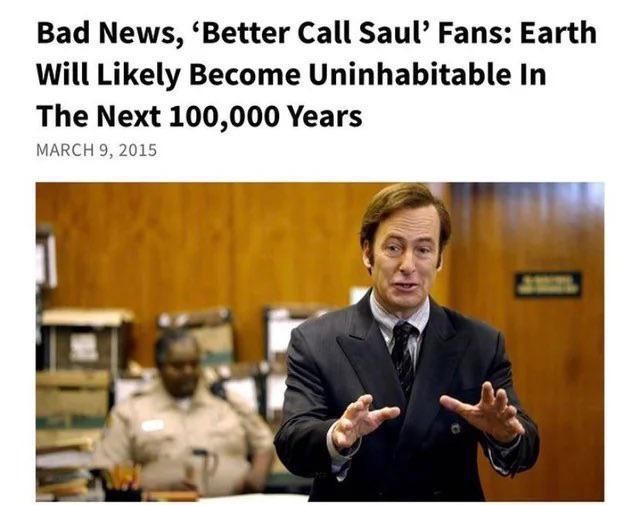Log: 4/9/2021
This week: Alternative RPG systems, race and anime, heavy bike cargo, farmland consolidation and ESG.
Alternative RPG systems
A comment on a thread about an upcoming tabletop RPG called Coyote & Crow led to me to look at a couple alternative tabletop RPG systems to D&D. The only other system I’d read anything about was the one for Cyberpunk 2020 which iirc isn’t all that much different from D&D.
Anyway, that’s not really what the linked thread is about. The commenter points that D&D and similar games usually encourage violent or other morally-compromising “solutions” to problems that come up. Having played a bit now, yes, violence, whether intentional or not, is the outcome of most scenarios in D&D. The mechanics probably do encourage it but that may also just be part of the fun of role-playing. The commenter points to some other rule systems that are designed to encourage other approaches to problem-solving (this is the context of solarpunk; cheating and murdering people is decidedly not solarpunk).
I looked at two of the mentioned games: ORBITAL and Ryuutama.
ORBITAL has a lot of interesting elements. It uses a system called “No Dice, No Masters”, originally from Dream Askew. Instead of dice, players earn tokens by doing things and they can spend those tokens to take certain actions, and everyone acts as game master collectively. The way the game structures scenarios is also very clear and helpful. Characters aren’t built around particular combat proficiencies like in D&D. It doesn’t even look like there’s a combat system.
Ryuutama basic system is much closer to D&D (dice-based skill checks) but also has a less clear delineation between game master and player. While there is combat, players gain experience through travelling long distances (their site says it’s sometimes called “Hayao Miyazaki’s Oregon Trail”), and the magic system has a greater focus on weird utility spells (e.g. “turn any biological matter into a bottle of jam”), which are way more interesting than combat-focused spells. Classes are also more along the lines of “farmer” and “merchant” rather than around combat roles.
Mechanics that don’t rely on indiscriminate violence are something I’m thinking a lot about while developing Fugue. A handy term is here “ludonarrative dissonance” which describes the inconsistency between the game’s narrative (you’re a hero doing good things, or whatever) and the mechanics (but you’re going around murdering hundreds if not thousands of people). I’m still on the fence about including combat in the game. Even if combat is a part of the game, only one or two characters will have any combat proficiency.
For what it’s worth the D&D campaign I’m in is successfully minimal on combat! It’s all the better for it.
An aside on dice systems: I’ve always found dice-based games and general randomness in games interesting. True randomness doesn’t vibe well and paradoxically feels unfair, so game designers often tweak true randomness to align more with our poorly-attuned perception of randomness. If you sit someone down and tell you to write out a random sequence of heads and tails, people will under-represent streaks of heads or tails. Our vulgar understanding of randomness is some like “having no pattern” but in an independent random sequence like coin flips a streak is just as likely as any other combination of flips (though, depending on length, may be rare among all sequences of flips).
Anime character design
Among anime enthusiasts I probably only rank as a “casual” consumer of anime, but I’ve always wondered why anime characters look so “Western”. I only recently learned of the term “mukokuseki”, which translates to “without nationality”, and at the time the hand-wavy answer I got was more or less “well they look Japanese to Japanese people”. Clearly there’s a lot more going on, and anime is generally terrible when it comes to issues of race. I have no doubt that this has been thoroughly explored in academia. But I haven’t ever really encountered discussion of the topic “in the wild”, but again I’m not very plugged into internet anime spheres. The most only recent memory I have of the topic is reading comments around The Last Airbender live-action adaptation, with many people arguing that Aang is white. That just feels wrong, but I don’t know if the show runners ever came out with an official statement on that. One of the many, many disappointments of The Legend of Korra is that Aang’s descendants are more heavily coded white in their features, so maybe that more or less communicates the show runners’ stance on it.
This topic came back to mind after coming across this post on the topic while looking for Satoshi Kon character design images. The post points a bit more to how big the iceberg really is, but still doesn’t go into much depth.
The TV Tropes entry on mukokuseki has this to say:
Japanese propaganda art during Imperial Japan’s military aggression towards China and Korea is notable for featuring Japanese people looking more “European” with their larger eyes and white skin in contrast to the Chinese and Koreans, who were depicted with smaller eyes and stereotypical yellow skin (which is not a real East Asian trait). This artistic racialization was done by the Japanese to distance themselves from the rest of the Asian continent, particularly other East Asians, whom they viewed as inferior to them, and to put themselves on the same level as the West (white people) even though Japanese people obviously bore more cultural and physical similarities to neighbouring East Asian nations than, say, the French.
Carry Shit Olympics
I love biking with cargo. I’ve never had a trailer or one of those bikes with the platform on it (I do have a small rear basket though) so I’m usually jury-rigging milkcrates and strapping tons of stuff to my backpack (and/or wearing a front backpack). I had to move out of two studios last summer this way (though for one of the moves I did borrow a truck for the bigger furniture pieces). Anyway this is an IG filled with images of people hauling cargo on bikes. It looks like these are mostly from North America or Europe because tbh this is kind of nothing compared to the cargo you see in China, such as cooking stalls and gravity-defying loads on 三轮车 (sānlúnchē; Kira and Crystal had a cupcake stand on one). But some are still pretty impressive. I’d love to get one of those cargo bicycles one day and haul stuff for people.
Bill Gates is the biggest private owner of farmland in the United States. Why?, Nick Estes
There was a moment of a lot of attention on “land grabs”; basically foreign private companies buying up large swathes of land throughout the world for speculative purposes (land being one of the fundamental resources and in fixed supply), for export-oriented industrial agriculture (increasingly seen as a good investment beyond the land itself, driven primarily by pension funds–people will always need to eat), for food security (e.g. countries with wealth but little arable land). Many of the projects on the purchased land puttered out. A report by GRAIN in 2016, “The global farmland grab in 2016: how big, how bad?”, reflects on that moment. We can throw climate change into that mix for probably two reasons:
- Climate change will probably exacerbate productivity differences across land, making land that remains productive through those changes even more valuable.
- On the “green capitalism” front, if services like carbon sequestration become profitable (e.g. through government subsidies or mandates requiring companies purchase offsets), many of the sequestration options have big land requirements (re/afforestation and carbon sequestering agriculture).
Rich people owning a lot of land isn’t really new, but Bill Gates is trying to spin it off as something socially beneficial. That also isn’t necessarily new (e.g. land dispossession because people weren’t using the land well/correctly or whatever) but this is a strong indication of where greenwashing is headed.
From the piece:
Investment firms are making the argument farmlands will meet “carbon-neutral” targets for sustainable investment portfolios while anticipating an increase of agricultural productivity and revenue.
ESG has gained a lot of popularity over the past couple years, basically the idea that you invest keeping environmental and social impacts in mind. The “governance” aspect of ESG is, as far as I know, already a part of most investment analysis. It’s not quite the same as ethical investing (which excludes entire categories of investments, e.g. weapons manufacturers) or impact investing (which invests with particular outcomes in mind). My understanding of ESG is that it’s a risk-based framework: for example, on the environmental front a company may be exposed to a lot of risk if they are heavy polluters and it’s likely that some strong pollution regulation is coming down the pipeline. They’d bear a high cost in fines or purchasing new equipment/changing their processes to meet the new pollution limits.
As far as I know most of the risk in ESG is regulatory, at least if you only consider it in the typical 5 year or less time horizons that analysts usually do. Some might be cultural, e.g. if a company does something racist that goes viral, but I have a feeling that doesn’t affect their bottom line that much (the people who make purchasing decisions on that basis are probably a much smaller fraction of a major company’s overall market than we’d like to believe). The more important externalities like climate change take a much longer time to play out. If it’s true that ESG risk is mostly regulatory, then ESG is really only as risky as the political environment the company operates in. And companies already take great measures to minimize political/regulatory risk.
The other way ESG goes is with this kind of greenwashed investing that’s pointed out in the piece. Regulatory risk is one side of ESG, the other is regulatory opportunity. As I mentioned above, things like subsidies for carbon sequestration or carbon offset mandates. Out of those two sides, this is of course the better one, but it still treats climate change as only a technical problem i.e. a matter of carbon accounting.


